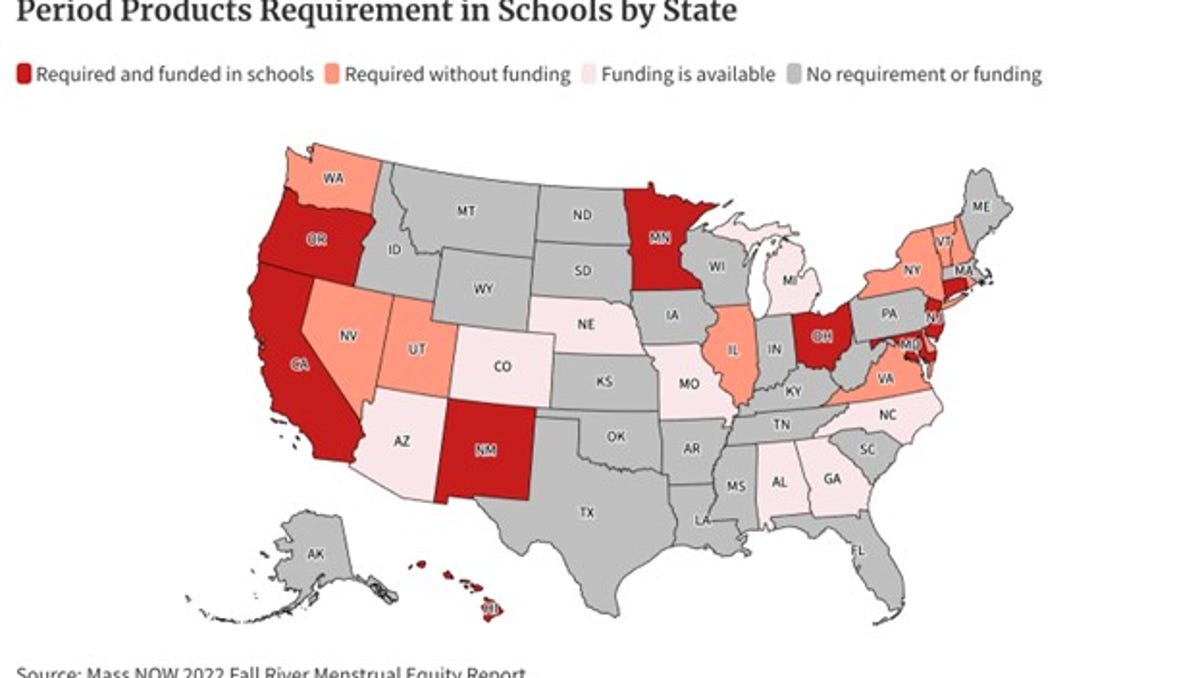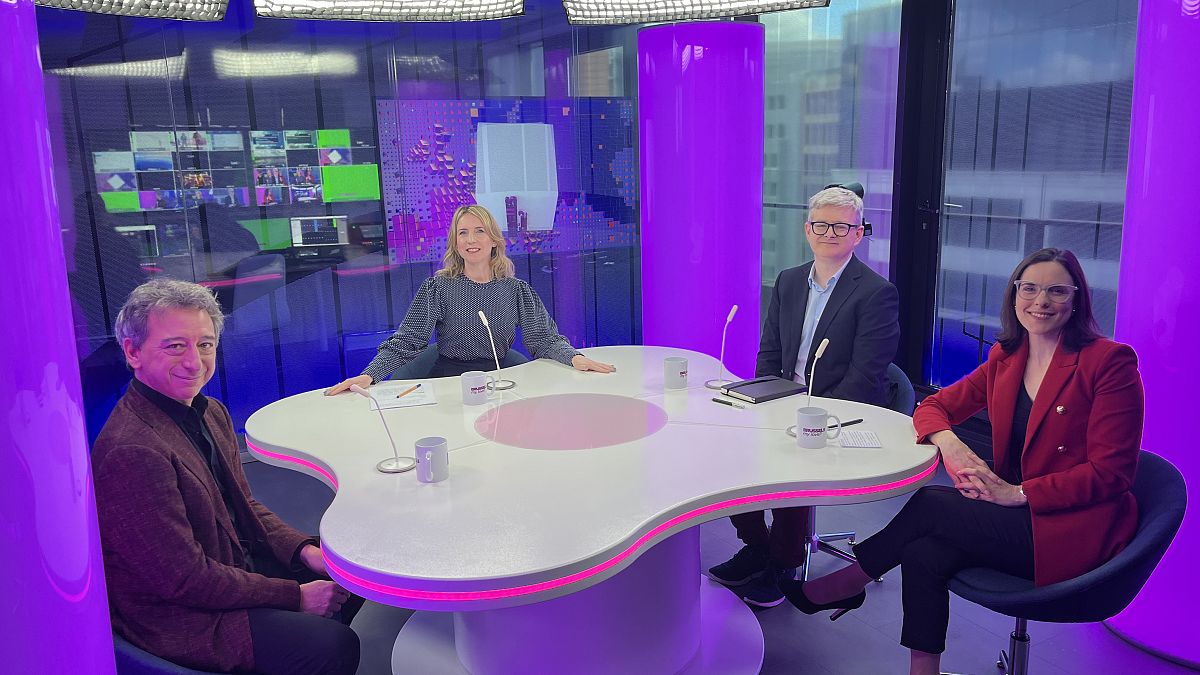Massachusetts
Second annual Tulip Mania starts April 17 at Mass. Horticultural Society in Wellesley

WELLESLEY — What better way to celebrate the natural beauty of spring than to get surrounded by thousands of brightly colored tulips in bloom.
The Massachusetts Horticultural Society will begin hosting its Tulip Mania event on Wednesday. The unique festival made its debut last year and was a runaway success, according to Megan Connolly, the society’s marketing specialist.
“We planted 50,000 bulbs the previous year in our trial garden and those tulips bloomed between April and May,” she said. “Rows and rows of flower beds. We’re back again this year. It’s great to have a really big pop of color at the beginning of spring.”
Where to catch Tulip Mania
Tulip Mania takes place at the Massachusetts Horticultural Society, at The Garden at Elm Bank, 900 Washington St. (Route 16), Wellesley.
When does Tulip Mania take place?
Tulip Mania officially starts Wednesday, April 17. Tickets will be on sale through Sunday, April 28. If Tulip Mania is extended past this date, more tickets will be released and it will be announced in the Massachusetts Horticultural Society’s email newsletter and on social media.
The garden is open from 10 a.m. with the last entry at 6 p.m.
How do you get tickets? How much do they cost?
Tickets must be purchased in advance at https://shop.masshort.org/products/tulip-mania. Tickets are $5 for Massachusetts Horticultural Society members, with general admission going for $19 for adults, $10 for youth and free for those 2 and under.
Tulip Mania admission includes five pick-your-own stems. Additional pick-your-own stems are available for purchase at $1 per stem. Pre-cut bunches will be available for purchase at $20 for 15 stems.
How about a little tulip trivia?
- Tulips are thought to be native to Asia Minor, the Near East and the Mediterranean, where they can still be found growing on mountain slopes and steppes.
- Trading in tulip bulbs became intensely profitable. This led to a period widely called “Tulip Mania,” which occurred in Amsterdam from 1634-37. During this time, a single bulb could allegedly go for as much as 12,000 guilders – about the price of a fashionable Amsterdam townhouse.
- Dutch exports of tulip bulbs comprise up to 10% of the Dutch GDP. The U.S. imports about one billion bulbs each year.
“As we go from winter to spring, we’re looking for reasons to enjoy the natural world around us,” Connolly said. “There’s no better way to do that than to be surrounded by thousands of tulips.”

Massachusetts
Massachusetts Board of Elementary and Secondary Education meeting at Wellesley High on April 30 – The Swellesley Report

Members of the Board of Elementary and Secondary Education will meet at 9:30 a.m. on Tuesday, April 30 at Wellesley High School. The public is welcome to attend, though the meeting will also be streamed online.
Wellesley High gets the honor of hosting the meeting because the Board’s student rep, Ela Gardiner, is a Wellesley High student. According to Gardiner’s bio on the Board website, “Ela has been a trailblazer for young voices in Massachusetts advocacy, working with the Massachusetts Association of Student Representatives and the National Student Board Member Association.”
Meeting agenda:
Statements from the Public
Comments from the Chair
Comments from the Secretary
Comments from the Acting Commissioner
- Receiverships (Lawrence, Southbridge, Holyoke)
- Felix Commonwealth Virtual School
- Brockton
- FAFSA
- Perkins State Plan
Routine Business:
Approval of the Minutes of the March 26, 2024 Regular Meeting
Agenda Items:
- Welcome from Wellesley Public Schools
- Update on Commissioner Search — Discussion
- Update on the Safe Schools Program for LGBTQ Students (download) — Discussion
- Update on DESE’s Educational Vision
- Literacy Launch (download) — Discussion
- Early College (download) — Discussion
- Education Budget Update: House Ways and Means FY25 State Education Budget Recommendations (download) — Discussion
Other Items for Information:
- Report on Grants Approved by the Commissioner (download)
Please support your local news source
Massachusetts
MA advocate groups are calling legislators to ensure equal access to menstrual products

When women and girls don’t have access to menstrual products, they have to “just bleed and pray” that their pants will hold. Many in Massachusetts are forced to use toilet paper as a substitute for period products.
“I think it’s a matter of dignity and allowing menstruators to have the option to not have to free bleed or just giving them that bodily autonomy of how they want to deal with their periods,” said Olivia Toscano, the community organizing co-op of the Massachusetts chapter of the National Organization for Women.
Advocacy groups in Massachusetts such as MassNOW are calling on House lawmakers to pass the I AM bill, to ensure access to free menstrual products, without stigma, to all women and girls in all public schools, homeless shelters, prisons, and county jails.
“It’s about making sure that these products which are part of health care, which a part of our life, are available,” said Sen. Robyn Kennedy, D-Worcester, one of the sponsors of the bill.” “It’s a basic need that all menstruating individuals have. And it’s about making sure that those products for that care are available to all individuals to help break down the disparities.”
How much spent on feminine hygiene products?
The average woman spends about $20 on feminine hygiene products per cycle, adding up to about $18,000 over a lifetime, according to estimates from the National Organization of Women.
“It costs a lot to buy these products,” said Toscano. “There are menstruators out there who have to choose between food, rent, and menstrual products. That’s not a choice that should have to be made. I think we need to stop looking at it as a luxury; it’s a necessity.”
In October, the Senate passed the I AM bill, originally introduced in 2019, but it has not yet been passed in the House.
Kate Barker Swindell, Service & Operations Manager of PERIOD. said Massachusetts has done some work, but it could do better.
The Alliance for Period Supplies reports that Massachusetts is considering nine bills related to menstrual access, while New Jersey leads with a total of 24 bills.
Rep. Natalie Higgins, D-Leominster, said the bill is “critical” because menstrual products are essential, but they are too expensive for many, especially those in schools, prisons, and shelters.
“I think I AM Bill really focuses on some of the places where institutionally there can be access issues. So starting with our schools, starting with our shelters, and starting with our jails and prisons, makes a lot of sense,” she said.
Kyla Speizer, the community organizer of MassNOW, said the measure is the first in the country to call for providing free menstrual products for all three places: schools, shelters and jails.
“Those three places are some of the places that period poverty is shown the most, so they are some of the most vulnerable populations,” she said.
Lack of education and awareness
“I’ve been working with public schools, libraries, and just connecting with either the head of the department to kind of see what is the need, who actually needs these products and supplying these products,” said Magdelene Barjolo, the Worcester regional organizer of MassNOW. When people donate to the needy, they think first of food and clothing, she said.
“Menstrual products are not a part of the conversation,” she said
PERIOD’s Swindell said through years of advocacy the conversations and the attention around the problem is “growing exponentially,” but the stigma is still a real thing.
“I will say that’s across all ages, all races, all cultures, all religions. It’s like universal,” she said.
As of right now, Barjolo said she hasn’t seen any schools implement the concept of period poverty within their curriculum. “They kind of steer away from it,” she said.
Even when menstrual products are provided in some places, the stigma creates “an extra barrier” for people who need them, Speizer said
“They’re afraid to ask for a menstrual product or they’re afraid to take a day off of work when they are having really bad cramps. Maybe they have a mental disorder and they can’t make it to work that day, or whatever it is,” she said. “The stigma is something that prevents a lot of folks from maybe achieving their goals.”
Grassroots organizing looks to meet interim needs
In December, Worcester City Manager Eric Batista said he was going to implement the first phase of providing free menstrual products within public spaces in the city early this year.
Barjolo said before anything happens, grassroots organizers will provide communities and public spaces with products.
“A lot of people have said something of what their initiatives are going to do in terms of menstrual health,” she said. “We’re actually doing the work aside from waiting for elected officials to do what they can do.”
Ali Civilikas, vice president of Menstrual Equity Alliance, a Clark University-affiliated student-led club, said the Alliance installed nine dispensers for menstrual products in school two years ago, and hand-fill those dispensers once a month.
“We just keep pads and tampons on us usually, and whoever has time to go around and fill them,” she said.
In an email, Lesa McWalters, social justice chair of First Unitarian Church of Worcester, said parishioners have set up a subscription to purchase pads each month (at $300 per month) and distribute them to sheltered women.
“There are approximately 100 women and teens in that shelter, and since SNAP benefits do not cover feminine products we have begun a program called Sister-to-Sister Cycle Connection at our church,” she wrote in the email. “This is a very basic need, and legislation should change the qualification of pads from a “luxury item” to a basic human right to have access to free feminine products as part of the SNAP benefits.”
Consistent supply can be an issue
Many school districts, lockups and shelters already provide free menstrual products, but consistently providing them can be challenging, Speizer said.
“Many of them do offer it for free or have procedures in place to offer it, but maybe they don’t have the stable resources to be consistently offering it,” she said.
As a student-led club, Menstrual Equity Alliance has struggled working with school administration and getting it to help fund clean menstrual products on campus, Civilikas said.
“I don’t think they’ve ever provided free menstrual products like we are right now.” she said.
According to the Alliance for Period Supplies, in the past three years, nine states passed laws to require and fund schools to provide period products. That does not include Massachusetts.
Kennedy said the bill would make sure that they’re required to be provided and that there’s funding available.
“This bill, and the additional work we need to do is really making sure that those products are available holistically and automatically for all individuals to be able to access,” she said.
Only a few people to help
Not having enough labor can also create an issue for grassroots or student-led organizations that depend on members to keep doing the work.
“It can be like logistically very difficult to deal with so much product and so much distribution that needs to happen with only a few people who have the ability to do this kind of thing full time,” Toscano said. “With the state stepping in, it’ll fix those problems.”
This is the third session since the I AM bill was first introduced, and it’s approaching the last few months of the second year of this legislative session. Speizer said the biggest hurdle is not lack of support, but making the bill a top priority for legislators.
“This is a bipartisan bill that everyone supports for the most part, but the issue is just making sure that it’s the number one priority for enough legislators that it gets passed quickly,” she said.
Higgins said she doesn’t have a projected timeline for the bill, but hopes the measure gets through the House and onto the governor’s desk.
“We’re getting so close to the end of the session that we’re not maybe as confident as we were six months ago. But we’re really proud of how far it’s come this session and proud of the work that has been done by everyone involved,” Speizer said. “At this point, it’s just did our efforts make as much of a difference as we wanted to or will we be trying again next year? It’s really hard to know.”
The Cape Cod Times is providing this coverage for free as a public service. Please take a moment to support local journalism by subscribing.
Massachusetts
UAW pushes through sellout deal at Massachusetts Museum of Contemporary Art
Late last month, the UAW announced a deal with management at the Massachusetts Museum of Contemporary Art (MASS MoCA) in North Adams. One hundred twenty members of UAW Local 2110 voted to ratify a new contract, ending a strike that began March 6.
The new contract is a sellout. It raises wages to only $18 an hour, well below a living wage in western Massachusetts. The new wages go into effect within 30 days, retroactive to January 1.
Negotiations began October 1, 2023, and the agreement came after eight collective bargaining sessions focused on wages. The strike lasted for three weeks and workers returned to their jobs the day following the announcement of the deal. During the walkout, MASS MoCA administration kept the museum open in a strikebreaking move.
MASS MoCA is one of the largest centers for contemporary visual art and performing arts in the United States. Its ongoing exhibitions feature works by conceptual and minimalist artist Sol LeWitt; light and space artist and National Medal of Arts recipient James Turrell; and German painter and sculptor Anselm Kiefer. Performances include dance, theater and musical artists, and public arts programs are offered for children, teens and adults.
MASS MoCA was created in 1999 after numerous fundraising efforts, including those at the state, local and private levels. Along with the Clark Art Institute and the Williams College Museum of Art, MASS MoCA is part of a complex of significant art museums in northern Berkshire County, contributing to the region’s cultural life and tourism. The museum’s buildings formerly housed printing and electrical component manufacturing facilities.
Prior to the agreement, the UAW stated that 58 percent of the museum’s unionized employees earned $16.25 per hour, with full-time workers averaging $43,600 per year. MASS MoCA management offered only a $1 increase, to $17.25 per hour, bringing annual earnings for workers—including part-timers—to just $35,880. The union sought a minimum 4.5 percent wage increase this year, which would have brought the hourly minimum wage to $18.25, just 25 cents per hour more than what was finally ratified.
The Economic Policy Institute’s Family Budget Calculator estimates the cost of a very modest living in Berkshire County at $47,000 per year for a single person without children, and $117,000 per year for a family of four. The Massachusetts Institute of Technology’s Living Wage Calculator finds that a childless individual living in Berkshire County would need to make $21.83 per hour to cover basic needs such as food, housing, medical care and transportation, which is nearly $7 more than Massachusetts’ already inadequate $15 per hour minimum wage. In 2022, a one-day strike resulted in the already meager minimum hourly wage rate moving from $15.50 to $16.25.
According to the UAW, the contract agreement includes:
- An increase to $18/hour minimum
- A 3.5 percent across-the-board increase to base pay, retroactive to January 1, 2024
- A 3.5 percent across-the-board increase to base pay, effective January 1, 2025
- Time-and-a-half overtime rates to apply to all hours worked after 10 hours in a day
Officials for both management and the museum praised the agreement after it was announced. “It’s a good agreement,” said Maida Rosenstein, director of organizing for UAW Local 2110. The museum’s management also offered praise. “The agreement marks another bold precedent that both the union and MASS MoCA desired and worked together to achieve,” stated Kristy Edmunds, museum director.
Museums should not be treated as luxuries for wealthy individuals but should be publicly funded and open to the public at no charge. MASS MoCA’s current and emeritus board of trustees is made up of financial, political, and educational elites, some of whose personal fortunes would be capable of lifting MASS MoCA workers’ wages out of the poverty level.
The attack on the living standards of museum workers occurs alongside those of autoworkers, logistics workers, railroad workers, healthcare and other workers, both nationally and internationally.
Last year the UAW rammed through a sellout contract on automakers which has paved the way for thousands of layoffs so far this year. The Teamsters union pushed through a similar contract at UPS, which provided management “labor certainty” to close 200 facilities and automate 400 more.
Even more fundamentally, the working class is being made to pay for the trillions spent on wars against Russia, Israel’s genocide against Palestinians in Gaza, and war preparations against China.
MASS MoCA workers must break free of the UAW apparatus and align with the dozens of other dues paying UAW members in the US Northeast by forming rank-and-file committees independent of the unions and the two big-business parties.
In addition to MASS MoCA, UAW Local 2110 holds the contracts at numerous museums in the Northeast, including the Bronx Museum of the Arts, Brooklyn Museum, Children’s Museum of the Arts, Guggenheim Museum, Jewish Museum, Museum of Modern Art (New York), Museum of Fine Arts (Boston), New Museum of Contemporary Art, Portland Museum of Art and Whitney Museum of American Art.
Workers at cultural institutions should travel to support their brothers and sisters on picket lines when strikes occur and shut down museums until workers’ demands are met.
Sign up for the WSWS email newsletter
-

 News1 week ago
News1 week agoIs this fictitious civil war closer to reality than we think? : Consider This from NPR
-

 World1 week ago
World1 week agoShipping firms plead for UN help amid escalating Middle East conflict
-

 Politics1 week ago
Politics1 week agoICE chief says this foreign adversary isn’t taking back its illegal immigrants
-

 Politics1 week ago
Politics1 week ago'Nothing more backwards' than US funding Ukraine border security but not our own, conservatives say
-

 News1 week ago
News1 week agoThe San Francisco Zoo will receive a pair of pandas from China
-

 World1 week ago
World1 week agoTwo Mexican mayoral contenders found dead on same day
-

 Politics1 week ago
Politics1 week agoRepublican aims to break decades long Senate election losing streak in this blue state
-

 World1 week ago
World1 week agoBrussels, my love? The EU single market is not sexy enough for voters


















